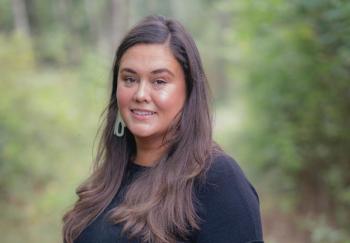Image Caption
Summary
Local Journalism Initiative Reporter
Windspeaker.com
It’s not the exact programming that had originally been envisioned.
Yet two dozen participants are currently involved with the first Indigenous accelerator program for entrepreneurs.
About 50 applications had been submitted to take part in the Fireweed Fellowship, a 10-month project launched last month.
Organizers then welcomed 23 ventures (there are actually 24 participants since one business consists of two entrepreneurs) to be part of the program.
Those taking part are Indigenous womxn (cis or trans), non-binary folx, two-spirited or IndigiQueer entrepreneurs.
Womxn is an alternative spelling for woman and women as it is inclusive of those who are trans or non-binary. Similarly, folx is an alternative spelling as it is viewed as gender neutral and inclusive of marginalized groups.
Organizers had hoped to bring Fireweed Fellowship participants to in-person sessions in Victoria, Winnipeg, Ottawa and Fredericton.
But due to the COVID-19 pandemic, all sessions for now will be held online.
“The thing you can’t recreate online is the in-between times,” said Fireweed Fellowship director Jacqueline Jennings, adding an example would be a coffee break during sessions during which participants could get to know others better.
Representatives from all 10 Canadian provinces and the three territories are taking part in the first cohort of the Fireweed Fellowship.
The venture that includes two participants is MINI TIPI, a business that creates various goods including blankets, mittens, scarves and ponchos.
The business, which was founded in 2016 and is based in Gatineau, Que., is owned by Trisha Pitura and Melanie Bernard.
For now, all program participants meet online every Tuesday for a session lasting two-and-a-half hours.
The program also includes three one-week intensives, featuring sessions five days a week. The first intensive is scheduled to begin Jan. 11.
To protect the health and safety of all participants, Jennings said organizers of the Fireweed Fellowship started planning as early as this past March to deliver an interactive online platform.
Though in all likelihood the entire 10-month program will be online, Jennings said there is a very slight chance to stage some in-person sessions later on in 2021.
“We’re holding out for a little bit of a Hail Mary, depending on what happens with the vaccine and the numbers (of COVID-19 cases),” she said.
Program officials are also already planning ahead for the second cohort that will be accepted next year. Applications will become available in May.
As for now, Jennings said the most disappointing aspect of offering an online program is that land-based learning is challenging.
“It becomes really hard online,” Jennings said. “At the beginning we didn’t think it would be possible. But we have engaged a firekeeper in one of the Zoom squares who engages with the participants.”
Jennings said the goal of Fireweed Fellowship is to provide support for businesses that are already in operation and generating revenues. Since capital from other sources is often required for businesses, Jennings said another goal is to prepare those in the cohort to become an investment, if they should choose to do so.
“We’re also trying to build leadership capacity and resiliency in entrepreneurs,” Jennings said.
Those in the inaugural cohort will be offered one-on-one coaching, peer support, mentorship, as well as pro-bono professional services and preparations on how to be investment ready.
There will be opportunities to be introduced to funders and investors. And there will also be online chats with various Elders.
The Fireweed Fellowship is an initiative of Canada’s first Indigenous-led and owned social finance intermediary called Raven Indigenous Capital Partners.
Paul Lacerte, who is a managing partner of Raven Indigenous Capital Partners, said it’s vital to be involved with the Fireweed Fellowship.
“By investing in our people, we can build the Indigenous economy,” he said. “We believe that is the best way to achieve equity and equality for Indigenous folx living in Canada today.”
Lacerte also believes the program will prove to be beneficial.
“The Fireweed Fellowship is the next step in fulfilling our vision by supporting entrepreneurs who are bringing back economic practices centred in relationship-based values,” he said.
Local Journalism Initiative Reporters are supported by a financial contribution made by the Government of Canada.

